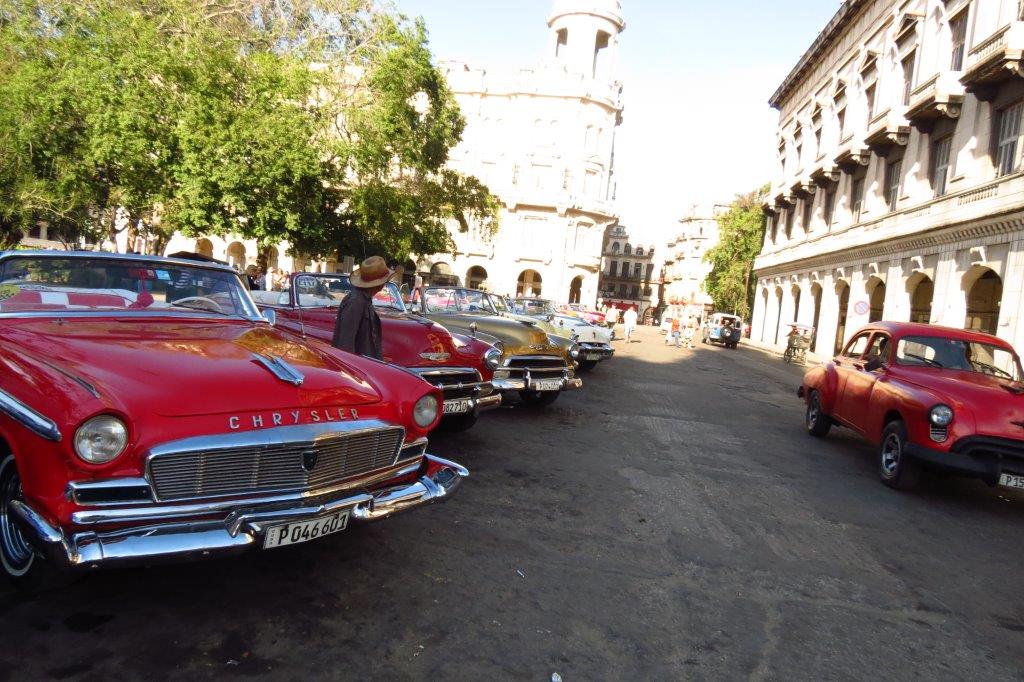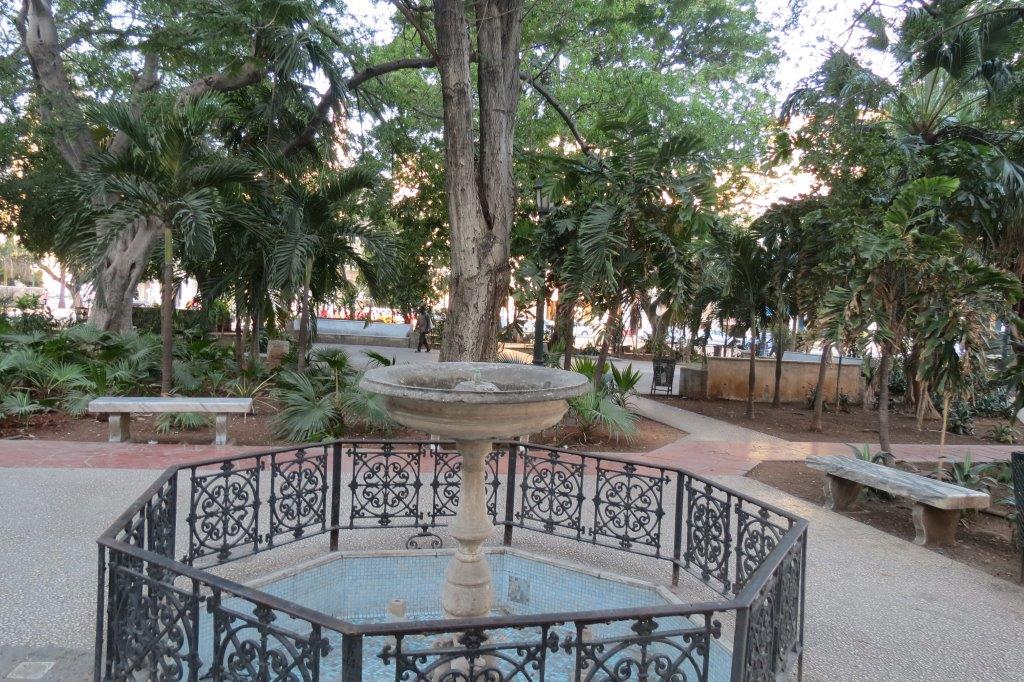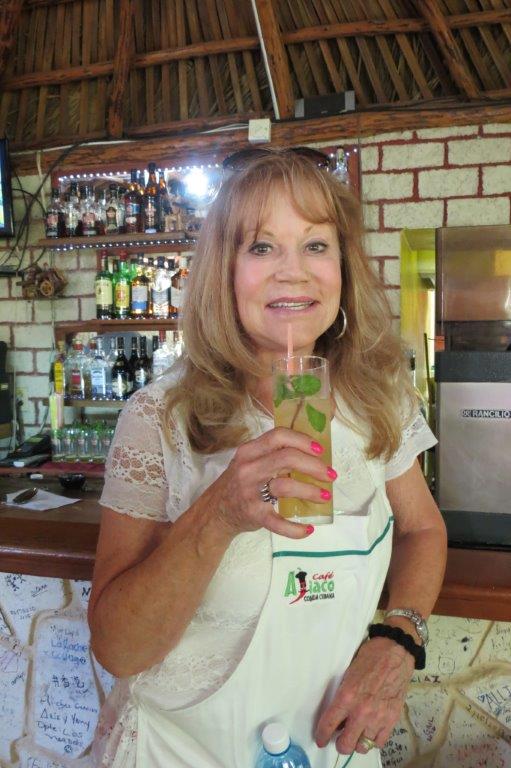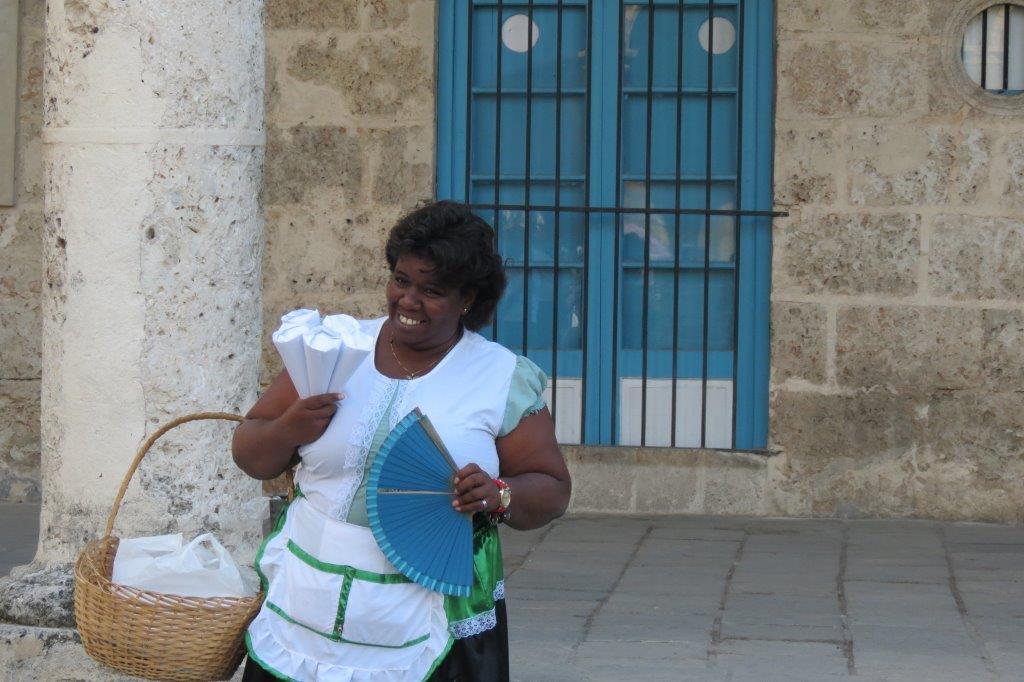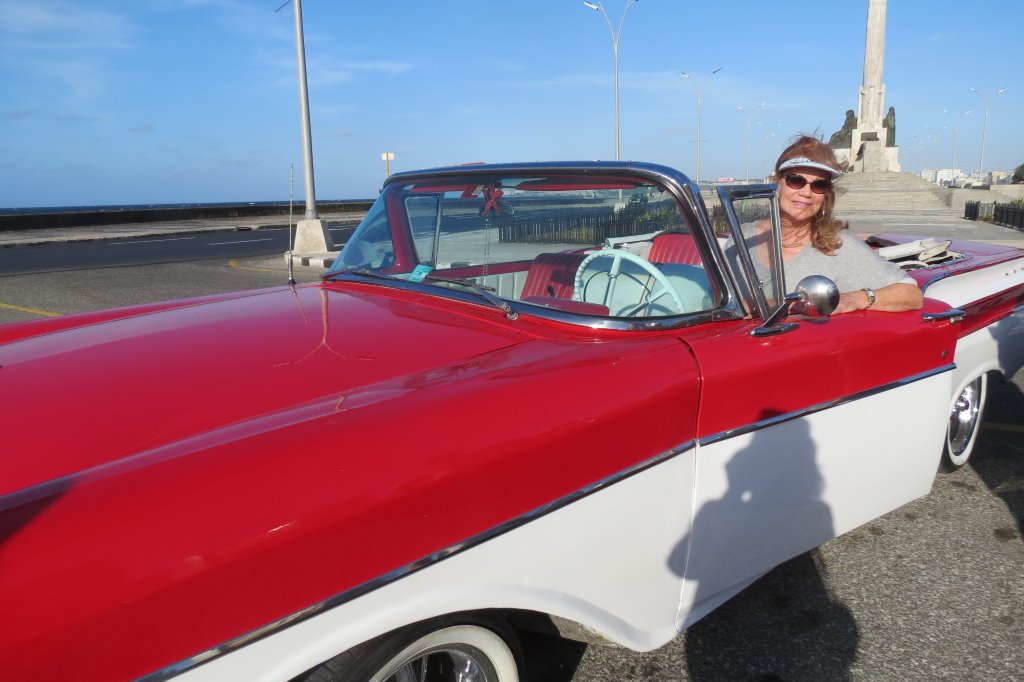Destination Review: Havana, Cuba
April 26, 2016 | By Donna Evans
I just got back from a trip to Havana, Cuba, something I was so excited to experience given their very recent opening to tourism. After waiting 2½ hours for our luggage to be delivered to the baggage carousel in Havana though, my expectations were not very high for my Cuba experience. It seems 2 flights landed at the same time and this tiny terminal, having only 2 baggage carousels, could not efficiently handle the challenge. Every bag arriving in Havana is scanned before it is “set free”, and travelers returning to Cuba, or visiting family and friends, bring numerous parcels and checked items. With a limited number of workers, and a seemingly archaic system, we waited.
Once we met our guide and realized we were going to be in a fairly-new air conditioned motorcoach with plenty of space, we felt like we had just been transported to a totally different Cuba. The city of Havana is beautiful and clean. You will see workers sweeping and picking up trash on a regular basis. There is a central square, Parque Central, where you will find classic cars, bicycle carts, horse drawn carts, tuk-tuks and taxis all being used as taxis. Of course, horse carts are used in the countryside, as in other countries, for transporting goods as well.
Our “people to people” group stayed at the Iberostar Parque Central, located right across from the central square. It was easy to navigate to the old town, shopping, restaurants and other squares when we had our “private time”.
We visited the Plaza de la Revolucion where Che Guevara and Camilo Cienfuegos are heroes and their portraits are exhibited. A historic landmark is the Hotel Nacional, which boasts celebrity guests of all sorts, sporting their photos throughout the common areas, and prides itself on the popular mojitos. We walked through Old Havana (Havana Viejo) and viewed remnants of the city’s opulent past, where the name “Hemingway” pops up everywhere.
We walked on cobblestone streets to visit the Plaza de Armas and Cathedral Square. We saw the bar where Hemingway was said to drink mojitos in large volume, a bar where he enjoyed daiquiris, and the spot where he was inspired to write some of his books. We concluded that it seemed the central theme to his life was his love of alcohol… After we listened to all of his daily habits, we were amazed that he found time to write at all. It was a different time.
Ernest Hemingway ‘s former home in Finca La Vigia is preserved much as it was when he lived there and wrote “The Old Man and the Sea” and “For Whom the Bell Tolls”. We were able to look in the windows to see everything much as it was during the time he was there.
We went to paladars, which are small, private restaurants that are family owned and run. I would compare them to a bed and breakfast vs. a major hotel. We learned to make mojitos, soup, and fish, even getting a certificate of our cooking skills. We learned about organic farming, which is a very exciting addition to the area, from a local farmer as he smiled and gestured in Cuban Spanish about his wonderful accomplishment.
A local physician spoke to us about public health in Cuba, which is well regarded throughout the world. Doctors complete their free education in Cuba and then are basically loaned out to other countries. They are not able to take their families with them when they are sent overseas to work and we surmised it is to make sure they return to Cuba.
We visited neighborhood community projects; listened to choirs and musical groups; attended a Cabaret with amazing costumes and Cuban dancing; saw Las Terrazas, which is part of Unesco’s Biosphere Reserve; and strolled through an art studio. We crossed Bacunayagua Bridge, Cuba’s longest and highest bridge that marks the border between Havana and Matanzas provinces; admired Ediciones Vigia, independent publishing of handmade books that are works of art; and perused a pharmaceutical museum showcasing bottles you might see in old movies. We engaged with a potter in a pottery house that has been a family business for generations, watched a man make cigars from raw leaves of tobacco, and visited the old city of Trinidad with gardens and squares that take you back in time. We came across many bed and breakfast properties. We also came across many entrepreneurs selling peanuts in conical bags with the opportunity to take their photos for a charge.
Taking a ride in one of the classic cars is definitely a tourist thing to do, and quite a treat if you take the time to drive through the forested areas where you gaze upon the stately and amazing expensive homes in the area. Our driver was an excellent guide and so proud of his car, smiling nonstop.
The food is wonderful, the cities and countryside are interesting, and the people are engaging. Accommodations for Americans should be at the 5 star level, but no lower than 4 star. It is good to be in a central location to be able to walk around when you have extra time. Food and accommodations are quite expensive in Cuba, but it really is a unique and interesting destination.
The people-to-people travel experience in Cuba enhances the understanding of what is happening in the country, where it has been and where it is going. Don’t miss it!

